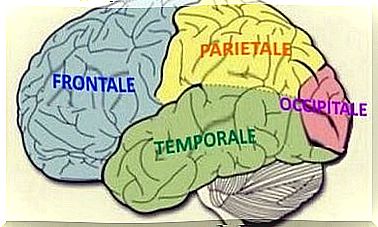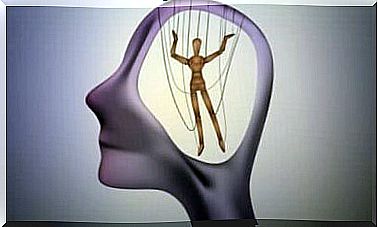Being Demanding With Oneself Is Dangerous

In our interview with psychologist Jenny Moix we will discover a dimension that will help us be happier: flexibility. To be flexible, we need to question many of our actions and the words we speak to ourselves. It means, for example, knowing that being demanding with ourselves hinders our growth and well-being.
Psychotherapist Albert Ellis used to say that our self-destructive thoughts and patterns are installed in our minds out of habit and practice. Indeed, sometimes we even inherit them from our parents and from the education received.
These inflexible mandates loaded with guilt and fear block our creativity and that vital impulse that allows us to be freer, more confident in creating the reality we desire.
Interview with Jenny Moix
Jenny Moix (Sabadell, Barcelona) has been passionate about psychology from an early age. He teaches psychology at the Autonomous University of Barcelona (UAB) and is a member of the research group on stress and health. She specializes in chronic pain, mindfulness and awareness.
In Spain she is also known for her publications and several books such as Manual de dolor (Manual of pain) (2006), Cara a cara con tu dolor (Face to face with your pain), (2011), Felicidad Flexible ( Flexible happiness ) (2011) and Mi mente sin mi (My mind without me) (2018). He has written several scientific articles, has collaborated for years with El País and with various media such as Catalunya Ràdio.
Jenny Moix is also a great communicator. He gives speeches and lectures on different branches of psychology and personal growth. Talking with her is a pleasure for her qualities, her enthusiasm and her remarkable ability to induce us to think, discover and understand much better who we are and what we could do to be happier. Let’s begin!

Because being demanding with oneself hinders us according to psychologist Jenny Moix
P. What does it mean to be demanding with oneself?
It means giving us a command or an order. It usually takes the form of a more or less unconscious thought that begins with “I have to …”.
P. When are we most demanding with ourselves?
We tend to be more demanding in situations where deeply rooted values and beliefs come into play.
For example, the thought “only people with excellent academic records are successful” prompts you to be demanding with grades or “only thin people can attract others” leads to being choosy with pounds.
P. Does being demanding offer us any advantages?
Being demanding with yourself is not harmful in itself. What makes it dangerous is the stiffness. Put simply, if we were to classify the things we expect from us into rigid and flexible, the rigid ones would be the bad and the flexible ones the good.
Flexible demands allow you to skip classes, stray your diet, not follow the schedule of the day, leave dirty dishes and also allow you to abandon them when they are foolish. The stiff ones make you feel tremendous guilt for the slightest deviation.
In life we need to have a meaning, a “where I am going”, without it we would be disoriented, we would not know what to do. Our values and our beliefs give us that sense, that orientation. Based on this we define goals and needs.
It’s the game of life. We make the rules and we follow them. We are playing the game. Sometimes, however, those goals, those rules of the game are too rigid and instead of guiding us, they only cause us pain. We follow them even if they are hard and we suffer, because not following them we feel guilty. This happens when we forget that, in reality, those values, beliefs, goals or rules of the game are relative. But we firmly claim that they are almost sacred.
Being demanding with ourselves can guide us and motivate us, provided that deep down we are well aware that it is we who have created these demands, so we can free ourselves from them. They are useful as long as they do not make us lose our freedom. When we say “I can’t say no” or “I can’t stop…” it is because we have forgotten that we have put those demands on ourselves there.
P. How does a person become demanding of himself? What factors are involved?
Our parents, family, teachers, friends, society in general are in charge of programming us. Even if programming doesn’t always give the same results. Some people, those we usually classify as “well adapted”, are more demanding than those we label as “passive”.
In a society that rewards having a lot of money, having a career, being in a couple all your life, being thin, looking young at all ages. A well-programmed person, adapted to this crazy society, becomes very demanding of himself.
And in the end, he succeeds! These claims are rewarded by society, which is why some people pride themselves on being very demanding of themselves. The company programs us so effectively that the claims we make have a built-in maintenance system.
Then there are other, more atavistic, more primitive factors that are written in our genes. Evolution has engraved them on our chromosomes. Homo sapiens did not survive alone, he is a group hominid, thanks to the tribe he remains safe. Thousands of years of evolution mark this fact in all our cells.
This is why we like that others share our point of view, that they do not judge us, that they accept us, that they love us. And this is precisely the main reason why we are demanding with ourselves.
From the enormous pressure we feel to make our bodies conform to the canons of beauty of the time, to the repression we place of our feelings so as not to create any conflict, they are there to make sure we stay in the tribe. This is why they are sometimes so rigid, because deep down we (wrongly) think that these demands are necessary for survival.

P. Is it possible to manage the high levels of demand? Like?
The word “manage” is another result of our framed society. It is fashionable to use the word “manage” our emotions, beliefs, feelings as if we were managing the activities of an office, as if we could put our subjectivity in an Excel and sort out all the boxes.
Just today a guy was telling me that he wants to stop being too demanding of himself in two months. As if you could give these things a time. We accumulate claims, we humans are hopeless.
Behind being demanding with ourselves, as we have seen, are our goals and values, along with the fear of guilt. The target tells you: “take care of your sick mother all the time, even if you have to give up everything” and the fear of guilt: “if you don’t, you will suffer from feelings of guilt until the end of your days”.
And even further back is the fear of emptiness. If there was someone who, with a magic eraser, could erase all the values so that we no longer have self-demolitions, what would guide us? Who would we be? What would we do?
Imagine a person whose entire existence revolves around the claim to take care of his mother, does nothing else, and this causes him great suffering, his physical and mental health is greatly deteriorated. Why did it get there? Why did she hold on to that value so intensely?
Perhaps there is the fear of emptiness, perhaps the fear of what to do with one’s life, perhaps the fear of being free. Being demanding with yourself can reach these depths.
P. Is being a perfectionist the same as being demanding?
They are two closely related concepts. We can expect the house to be perfectly clean, the shirt perfectly ironed, the hair perfectly cut, everything perfectly in order.
As we have said before, the demands on ourselves can be of varying degrees. Some are more flexible, and therefore healthy, and others are more rigid and make us suffer. Desperately seeking perfection in something makes us rigid.
It tells us about the desire for reality to fit a mental ideal about something. In this case, the suffering comes from the fact that reality and ideals never tend to adapt.
P. Are self-esteem and demands linked in any way?
Yes, they are linked. Many claims to ourselves arise from the need to prove something to the world, to ourselves or to “be better” so that others accept us. Therefore, the lower the self-esteem, the greater the needs of this type.
Likewise, we want to be better for loving ourselves, but love for ourselves must be unconditional, like the love mothers have for their children. Genuine love is to love ourselves as we are, to accept ourselves.
A child who is loved and accepted is happier and turns his life into something much more beautiful. It is the same for us. Accepting our uniqueness would be easier without the constant presence of social ideals. Being aware of the pressure of these ideals is the only way to be less affected by them.
P. Is happiness compatible with claims?
The word “claim” seems ugly to me. “Pretesa” is something very hard and straightforward. “My boss is demanding that I …” sounds like “if you don’t, you will be fired, your salary will be halved or there will be some kind of repercussion.” If we had to choose our boss, would we choose it demanding or does it motivate us?
I think most of us would prefer a superior who pushes. In other words, someone who is aware of our qualities and who values them, who congratulates us on our successes and who forgives us when we are wrong; someone who teaches us.
We would be happier with this “external” garment, because the same happens with the “internal” garment. Motivating is better than pretending.

P. Finally, could you give us some guidelines or advice to keep in mind to stop being demanding with ourselves?
I believe that from the beginning we must accept ourselves with our claims. “I am me and my self demands”. This would be the starting motto. It is normal to have claims, some more, some less. We are programmed. Fighting against them would be like asking them to be eliminated. Yet another claim.
How about just looking at them? Observe them as a mother observing her baby or as when we observe our beloved cat or dog throwing a tantrum. Observe them without judging them.
To observe them we have to recognize them, and many times they are not evident. Many claims come disguised as external requests. We feel obliged by our family, our colleagues, our partner to do something. And we live it as a demand that comes from them, external. But it’s actually internal! Nobody is pointing a gun at us.
If we asked a group of people how they stopped being too demanding of themselves, we would probably have an answer similar to “One day I realized that… it made no sense”. And what triggered them? The lyrics of a song, a movie, a book, a conversation with a friend, a pencil that has fallen to the ground, a bird that has crossed their garden?
Conclusions
Thanks to the words of the psychologist Jenny Moix we can reflect on the consequences in everyday life of an overly demanding attitude towards oneself . Are you ready to initiate a change that will offer you numerous benefits?








